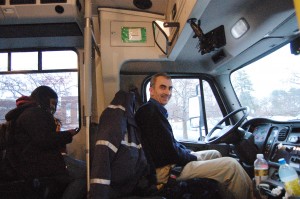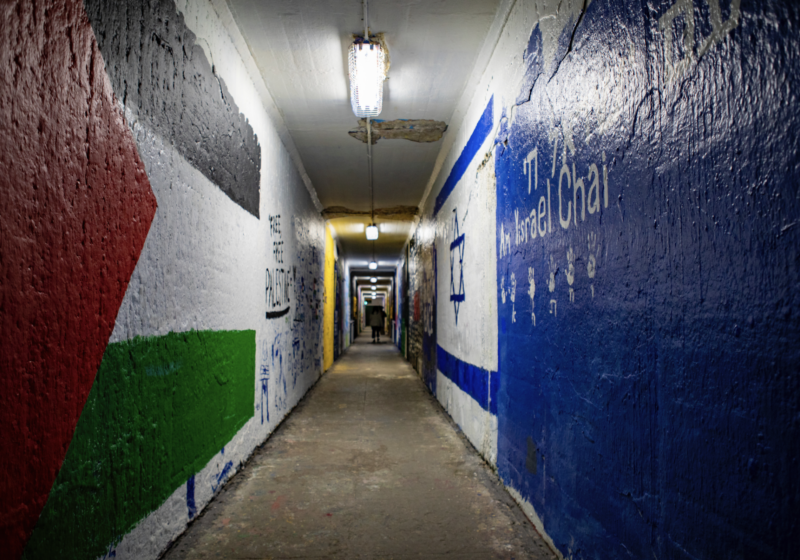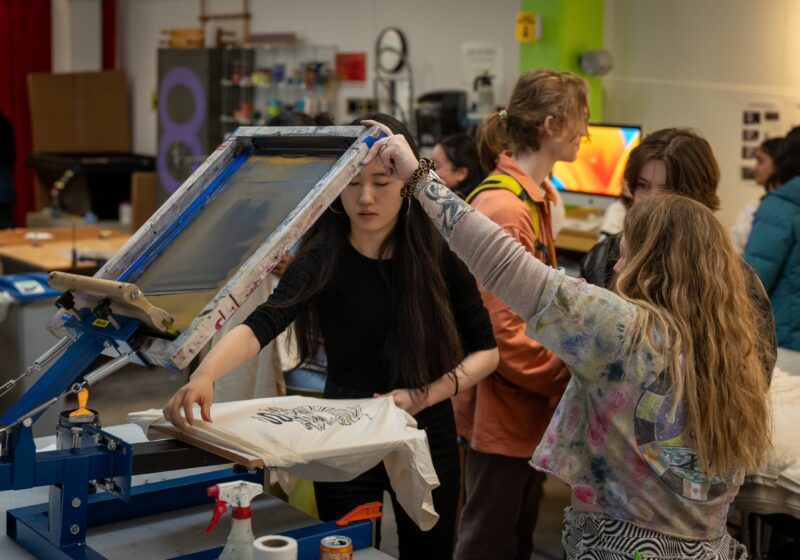Snow plowers pave empty roads after dark. Facilities workers often finish their shift before most students are even awake. Hillside is open 24 hours and requires overnight supervision. Even during the day, University gardeners silently prune the campus flora while construction crews erect new classrooms.
Though we often stumble across such individuals during the course of our day-to-day activities, seldom do we stop to notice and appreciate their efforts. Even more rarely do we stop to learn about the person beyond the job.
This is the story of UR bus driver Sead Jahic.
With the turn of a key, the engine sputters to life — then stalls. Barely four-months old, the bus is already showing signs of wear. Not quite full, the bus carries maybe a dozen passengers. No one wants to be late.
“No problem,” the 48-year old driver said. From flat tires to dead batteries to faulty spark plugs, he’s seen — and fixed — it all.
“I’ll be right back,” continued Jahic, who saunters out to pop open the hood.
Sure enough, less than a minute later, he’s back behind the wheel. He slips the key into the ignition. The bus roars to life.
“He’s a badass driver, that’s what he is,” junior and Silver Line commuter Justin Kallman declared, citing that his “passion really shows.”
Driving for the University since 2007, Jahic runs the afternoon Silver Line shuttle which travels between Park Lot and Rush Rhees Library, Monday to Friday.
While he insists that taking students from one end of campus to another is “more fun than it sounds,” Jahic wasn’t always in the bussing business.
Born and raised in Sarajevo, Bosnia, he attended the Belgrade Police Academy in Serbia. Four years later, Jahic graduated — twentieth among his class of 3,600 cadets, no less — and started working with the Belgrade Police Department. Not bad for an 18-year old.
“It’s different from America,” he explained. “Once you graduate, you’re guaranteed a job on the force. No college required.”
Still, Jahic decided to go to college, graduating from Belgrade University in 1987 with a bachelor’s degree in criminal justice. It was during this time he also married his childhood sweetheart Sajma.
“We came from the same village,” he smiled. “Her school bus passed my house everyday.”
Still active on the police force, Jahic was reassigned to a desk job at the Yugoslavian embassy in Moscow. Newlywed and nearly broke, he reluctantly made the move alone while Sajma stayed behind.
“It was tough,” he recalled. “Whatever money I made, I sent to my family.”
In 1989, Jahic returned to Belgrade, reuniting with Sajma and their two children. Normalcy — at least for a while.
When conflict broke out in early 1992, he faced the most difficult decision of his life yet: staying in war-torn Yugoslavia or leaving the country, quite possibly, for good. According to Jahic, the decision ultimately came down to family.
“There was no guarantee we’d be alive if we stayed,” he explained. “For the sake of my children, we had to leave.”
And leave they did, to Munich. Speaking virtually no German, Jahic nonetheless went door to door asking for work — carpentry, plumbing, anything. Finally, after six weeks of shut doors and dropped phone calls, he was hired at BMW as an assembly line foreman. Though the pay was decent, Jahic soon found himself standing again at a crossroads: his visa had expired. Seeing no future in the Balkans, the family settled in Rochester on Oct. 15, 1998.
“I had a choice to go back to Bosnia or apply for a visa somewhere else,” he said. “My cousin already lived here, so we emigrated through the refugee program.”
While planting roots in the United States had its obvious share of challenges, Jahic has no regrets.
“Thanks to our sacrifice, my kids are grown up now and making good money,” he beamed. “That’s all I could want.”
Jahic’s daughter, a recent graduate from the Johns Hopkins Carey Business School, currently works as a translator for the State Department. His son is a junior at George Mason University, studying to be a surgeon. Both have big dreams for the future.
As for Jahic, he’s prepared to stick around UR for the long haul.
“I’ll stay here, I think,” he said. “I love this job.”
Gould is a member of the class of 2014.






